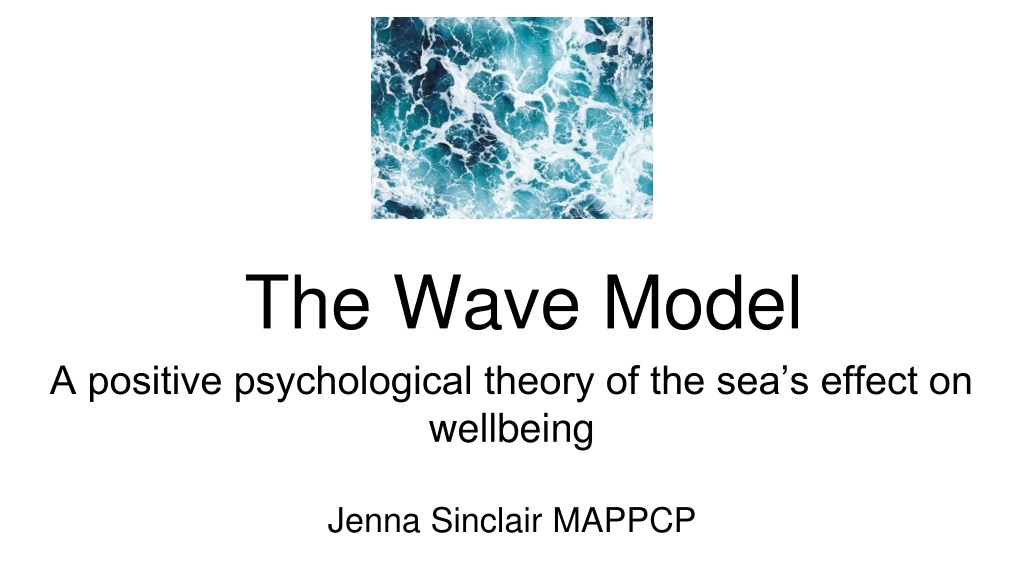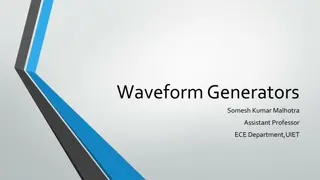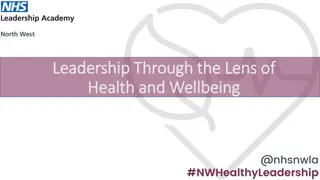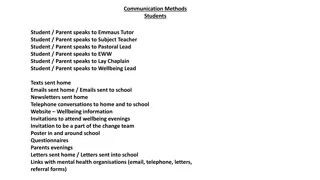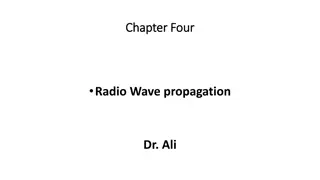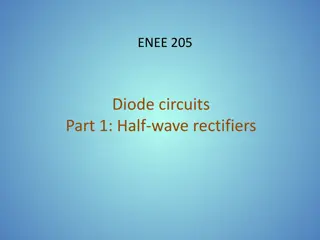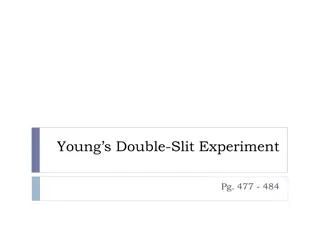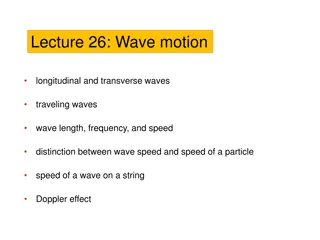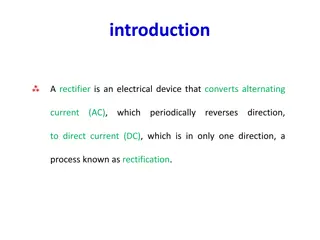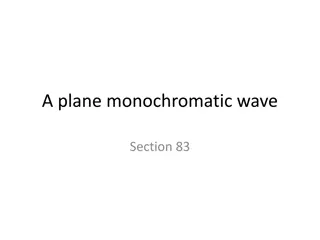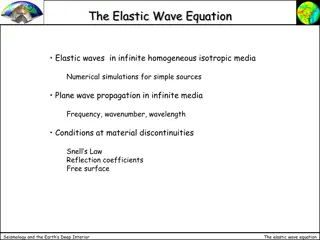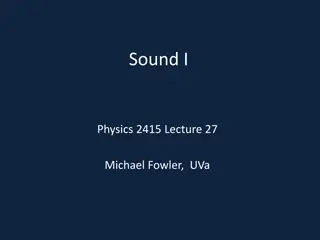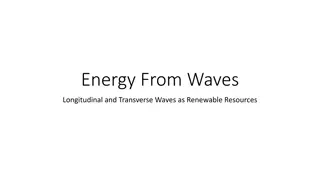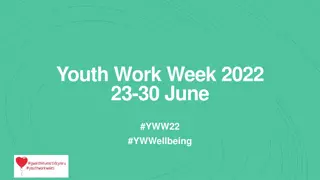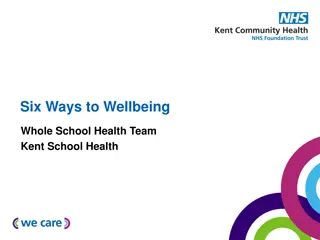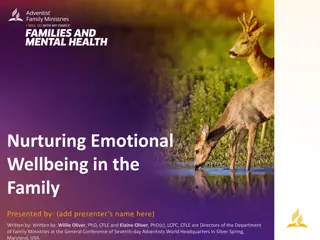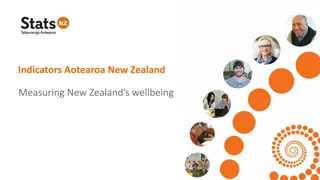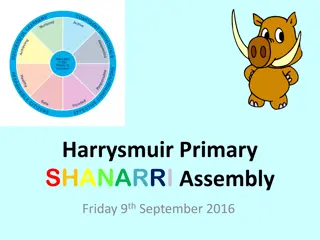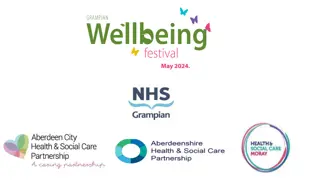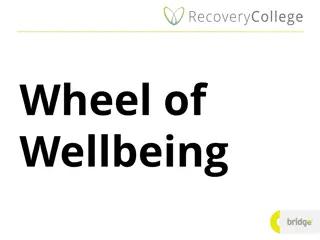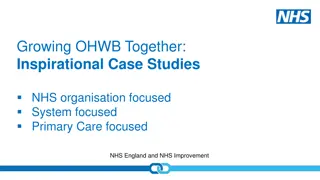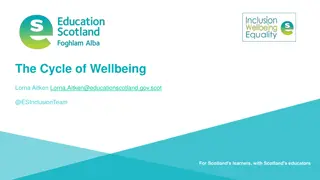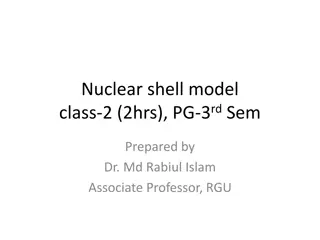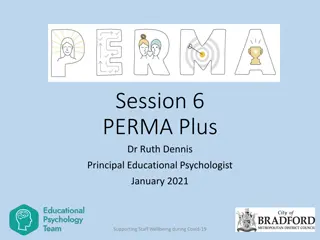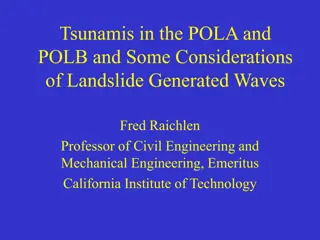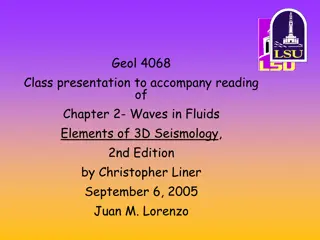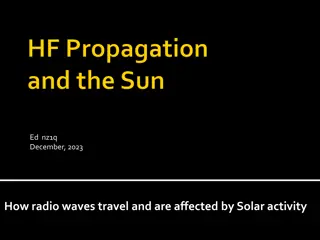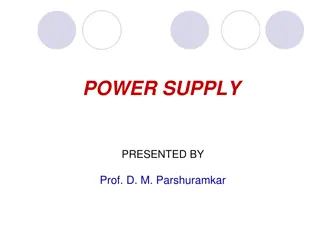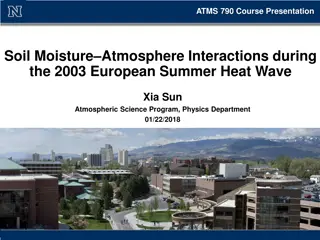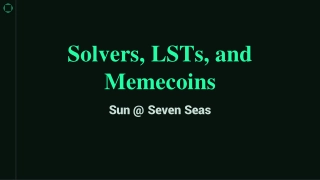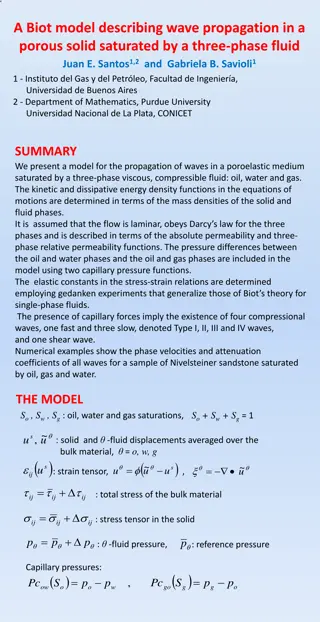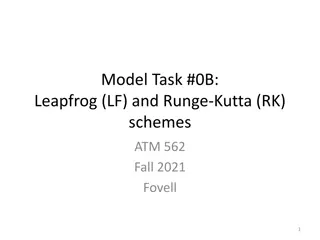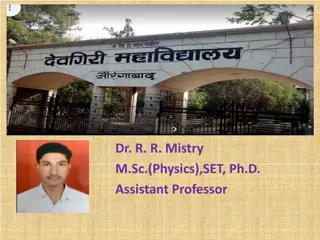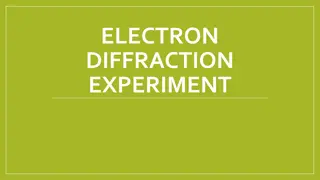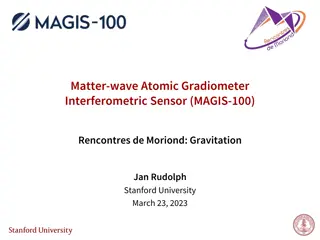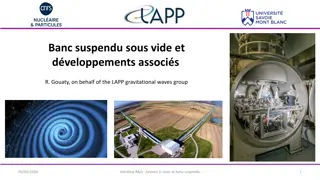The Wave Model: Understanding the Sea's Positive Impact on Wellbeing
Explore how immersing in the sea positively affects wellbeing through the Wave Model, uncovering themes like awareness, time, connectedness, growth, and dualism. The study delves into participants engaging in sea-related activities across various locations, showcasing both positive and negative emotions experienced during immersion. Discover how these findings can be integrated into Positive Psychology practices, offering insights for mental health applications.
Download Presentation

Please find below an Image/Link to download the presentation.
The content on the website is provided AS IS for your information and personal use only. It may not be sold, licensed, or shared on other websites without obtaining consent from the author. Download presentation by click this link. If you encounter any issues during the download, it is possible that the publisher has removed the file from their server.
E N D
Presentation Transcript
The Wave Model A positive psychological theory of the sea s effect on wellbeing Jenna Sinclair MAPPCP
Order of events -Why do this research? -How it was conducted -What was found -How we can integrate it into PP? -Questions
Why study the seas effect on wellbeing? Nature: Blue Mind, Blue Health, Blue Space, Blue Gym... But immersion? Cold water immersion But in nature?
Current Applications -Surf Action -Surfing for PTSD -The Wave Project - Children s mental health -Open water swimming for depression -Noticing nature (mindfulness) But no current water-based PPIs...
Research Design -Grounded Theory -8 participants -Male & Female -Variety of immersive sea related activities: surfing, diving, kite surfing, sea swimming and ice dipping across Denmark, Italy, UK, USA and Dominican Republic...
What was found: The Wave Model Themes Found: Awareness, Time, Connectedness, Growth & Dualism...
Awareness Two categories: Positive emotions: joy, gratitude, excitement, calmness, completeness, wonder, awe, (pleasant) surprise, brave, realised, alive, admired, grounded and liberated Sensing: The need to co-exist that life is beautiful A similarity between nature and us and feelings of weightlessness
Awareness Negative emotions: Fear, anxiety, discomfort, physical pain (burning, stinging), screaming Anxiety and depression as a precursor for immersion Replaced by positive emotions...bound by time. Cyclical.
It was almost like it's assaulting every sense you've got...and that's when I did put my face in and that's when I was like, oh, this is what people are talking about, clearly. And it was pain. But like a burning pain, it felt like burning. Not that I've ever burnt my face, but it's a horrible, burning sensation -H So why do it?
Growth Two categories: -Challenge challenging ourselves, being challenged by others, feeling challenged by the elements -Self-as-process Who are we? Who is that person who believes they are strong enough. Where is that person s concept of self? Imagining the future self (time)
Time Two categories emerged here: Mindfulness - An awareness of The Now. Nature invites awareness of The Now due to the multisensory experience. Stopping - Clawing back time and before the day begins
Connectedness Two categories: Disconnection - From baggage (mentally and physically) technology, work, stress and others Spirituality - We connect to The Universe, ourselves (our feelings) others and nature We feel part of something. We feel at one
Duality=Nonduality (No separation) -We feel powerless yet powerful (Self-efficacy) -We experience positive and negative emotions -We need to disconnect and connect To things that provide meaning We need the sea and the sea needs us (Kelly, 2018)
How does this relate to existing research? Wellbeing models: PERMA (Seligman, 2011) Hero s Journey Model of Development (Campbell, 1990) Nature immersion increases positive affect, reduces mental fatigue (Kaplan 1995) and increases compassion and connectedness (Capaldi, 2015)
How does this relate to existing research? Cont. PP is NOT Pollyannaish - PP2.0 Taoism (balance and harmony with nature) and Nonduality Positive-Negative Dialectics (Lomas & Itzvan) Similar to Niemiec s golden mean of character strengths
Spirituality We need to feel part of something Holon Theory Wilber (1997b) we are simultaneously whole yet part of something else. The Oceanic Feeling = Being at one with the universe Chaironic happiness (Wong 2010)a type of happiness aroused through connection to something bigger than ourselves
Self Concept Experienced self vs Remembered Self
The self concept is the basis of all human motivation (Franken, 1994) Who do you want to be? We are acting based on ideas of who we are Without a self concept, we have no possible self, and the idea of a possible self creates motivation for behaviour.
Disconnection and Reconnection Disconnecting from technology, stress, other people and connecting back to nature enhances our sense of wellbeing and energises us. We live in a fragmented society (Hooks, 1995) Poor interrelations, lessened attention spans and growing separation
Summary: Sea immersion -Increases our awareness of sensations both negative and positive which increases our sense of mindfulness and ability to be present. -Provides us with a challenge which allows for a possible self to be imagined and remembered which increases our self- efficacy and self-belief. We must embrace challenge as an opportunity to grow. Discomfort causes growth. -We disconnect from technology, stress and the day while reconnecting with nature, feeling part of something.
The Wave Model as an integrated PP application in coaching -Mindfulness a key modality -Recognising temporality of emotions -Overcoming challenge, building resilience and self- efficacy -Growing the self-concept to forecast development
Questions Thank you for listening info@livingintentionally.co.uk www.livingintentionally.co.uk
